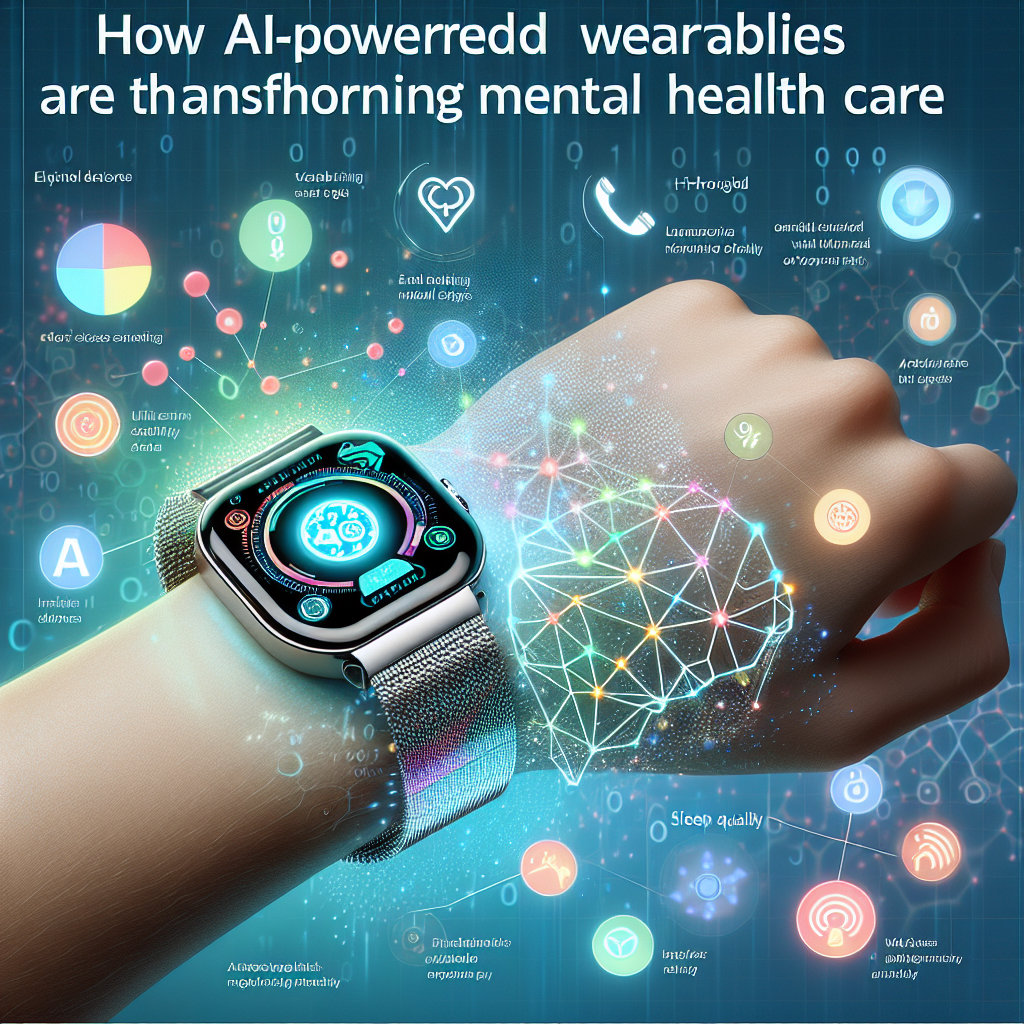As mental health awareness continues to grow, the incorporation of artificial intelligence (AI) into wearable technology presents exciting opportunities for mental health management. These AI-infused wearables not only monitor vital physiological metrics but also deliver personalized insights and interventions based on individual requirements. This article delves into how these cutting-edge devices are transforming mental health management, promoting well-being, and empowering users.
The Emergence of AI-Powered Wearables
Wearable technology has progressed from basic fitness trackers to advanced devices capable of overseeing a variety of health indicators. The application of AI algorithms has revolutionized these wearables into smart systems that can analyze data on an unprecedented scale. By merging physiological data with machine learning, these devices provide insights to help users gain a clearer understanding of their mental and emotional well-being.
Essential Features of AI-Powered Wearables for Mental Health
1. Ongoing Monitoring
AI-powered wearables consistently collect data, including heart rate, sleep patterns, and physical activity levels. This real-time assessment helps users identify shifts in their mental health, such as rising anxiety or stress levels, enabling timely intervention.
2. Data Interpretation and Customized Insights
The strength of AI lies in its capacity to interpret extensive datasets. Wearables can detect behavioral patterns and correlations between physical health and mental states. For instance, a wearable may observe that higher stress levels are linked to inadequate sleep, prompting users to modify their habits rationally.
3. Emotional Tracking and Support
Numerous AI wearables incorporate mood-tracking features. Users can input their emotional state, and the device will analyze this data to offer insights and recommend coping mechanisms, such as mindfulness practices or breathing exercises. This feature cultivates self-awareness and encourages users to prioritize mental health hygiene.
4. Access to Mental Health Tools
Several AI-enhanced wearables integrate with applications that link users to mental health resources, including therapists, support groups, and informative materials. This connectivity ensures users can access professional assistance and supplementary support systems.
5. Instant Feedback and Notifications
Wearables can deliver immediate feedback based on collected metrics. For example, if the device detects high heart rates or stress levels, it may suggest that the user practices relaxation techniques or takes a break. This rapid feedback aids users in developing healthier coping strategies.
Case Studies and Success Narratives
1. The Explore App by Fitbit
Fitbit, a leader in wearable technology, has broadened its health monitoring capabilities to encompass mental health management. The Explore app allows users to record their mood alongside physical activity. By examining data over time, Fitbit offers personalized insights that promote healthier choices and mindfulness practices.
2. Apple Watch and Breathe App
The Apple Watch includes features focused on mental health, such as the Breathe app, which instructs users through deep-breathing exercises. The watch vibrates to remind users to take a moment for self-care, helping to alleviate stress and enhance concentration.
Challenges and Factors to Consider
Despite their many advantages, AI-powered wearables face certain challenges. Issues surrounding data privacy and user consent are critical, as sensitive mental health information is gathered and analyzed. Additionally, while these devices offer valuable insights, they should not replace professional mental health treatment.
The Prospective Future of AI-Powered Wearables in Mental Health
As technology progresses, the possible uses of AI-enhanced wearables in mental health are boundless. Future advancements may involve improved predictive analytics, facilitating even more personalized interventions. Partnerships between tech companies and mental health professionals will further bridge the divide between wearable technology and effective psychological care.
Conclusion
AI-driven wearables symbolize a groundbreaking advancement in mental health management, equipping users with the tools to comprehend and enhance their emotional wellness. By utilizing real-time data and tailored insights, these devices empower individuals to take control of their mental health, ultimately fostering a culture of awareness and proactive care. As we continue to integrate this technology, the future of mental health support appears more promising and accessible than ever.

